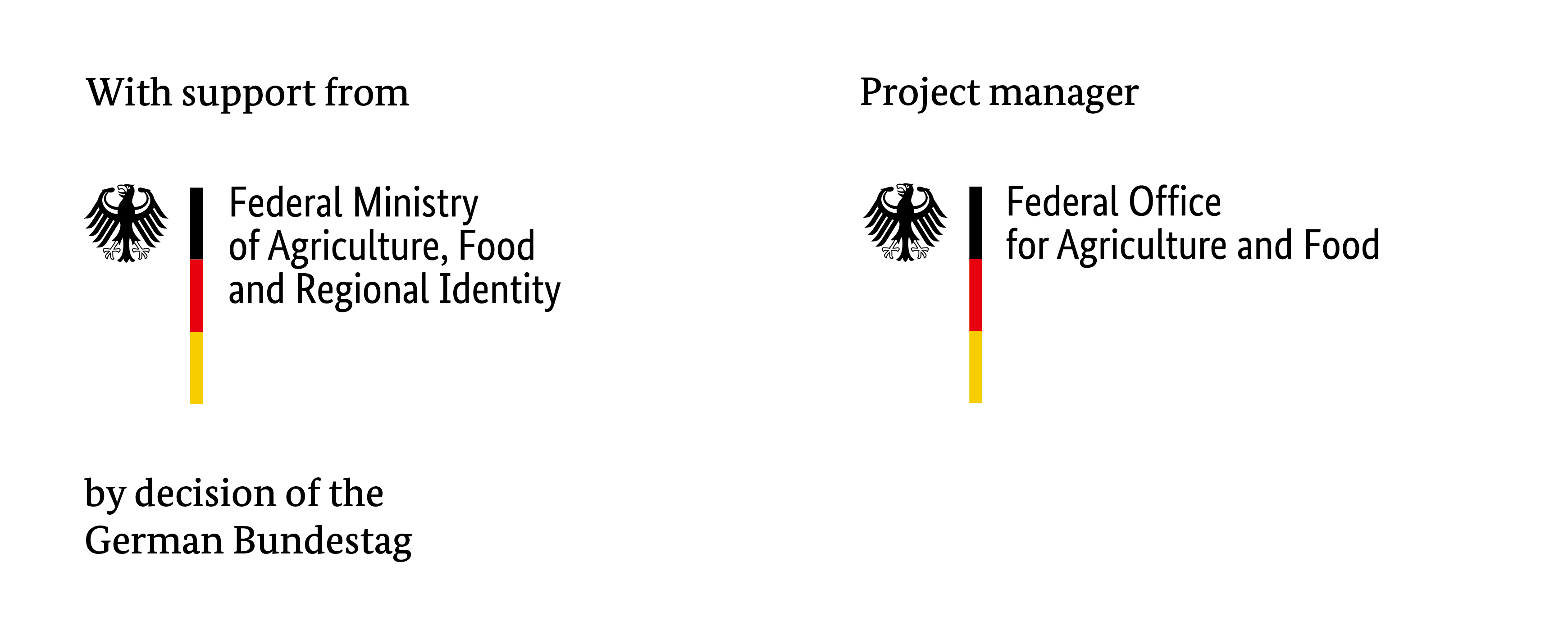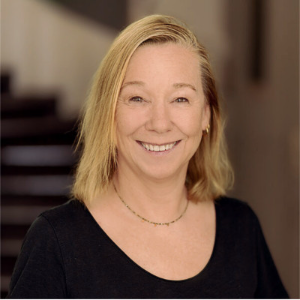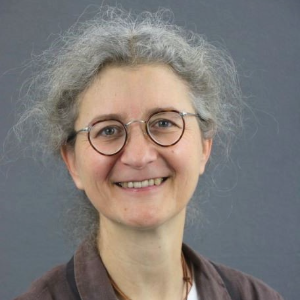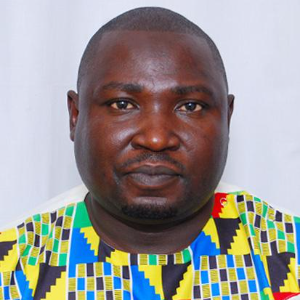
Co-funded by the
Federal Ministry of Food and Agriculture
of the German Government


Co-funded by the
Federal Ministry of Food and Agriculture
of the German Government


The Centre for Rural Development (SLE) at the Albrecht Daniel Thaer Institute of Agricultural and Horticultural Sciences is part of the Faculty of Life Sciences at Humboldt University of Berlin. SLE is dedicated to promoting sustainable development, particularly in rural areas of the Global South, for over 60 years. The leading role in teaching, training and research in the field of international cooperation is motivated by a clear objective: to make a positive contribution to overcoming global challenges. SLE aims to positively influence and accelerate socially and ecologically sustainable transformation processes through well-founded empirical knowledge, cooperation with practical organizations and the training of future specialists and managers.







Pwani University (www.pu.ac.ke) is a public university located 60 km north of Mombasa in the resort town of Kilifi, within the larger Kilifi County, Kenya. Prior to the award of a charter, the university was a constituent college of Kenyatta University. Pwani University, formerly the Kilifi Institute of Agriculture, was established as a fully-fledged University on 23 August 2007. It occupies approximately 239 hectares of land, giving room for future expansion. Currently, the university has about 700 staff members (both academic and support staff) and 8,000 students. The mandate of Pwani University is to provide quality education, training, research, outreach and opportunities for innovation for the advancement of individual and society. Pwani University currently has seven (7) schools, namely, School of Agricultural Sciences and Agribusiness, School of Education, School of Humanities and Social Sciences, School of Environmental and Earth Sciences, School of Business and Economics, School of Pure and Applied Sciences, School of Health and Human Sciences. The schools strive to produce programmes that are unique and market-driven such that, they are tailored to suit specific needs of the client and the region. To oversee the programmes the Schools is blessed with a team of energetic, qualified, experienced, and highly motivated faculty.




PlantVillage Kenya is a farmer-focused initiative dedicated to improving food security, climate resilience, and livelihoods among smallholder farmers. Its mission is to harness science, technology, and community-driven solutions to help farmers adapt to the challenges of pests, diseases, and climate change. The organization’s goals include promoting climate-smart agriculture, enhancing access to digital advisory tools like the AI-powered Nuru app and SMS platforms, and scaling sustainable innovations such as solar-powered irrigation, agroforestry, and biochar production. With objectives centered on empowering farmers through knowledge, technology, and regenerative practices, PlantVillage works to create long-term solutions that not only boost productivity and income but also contribute to environmental conservation and climate change mitigation across Kenya


The Senegalese Institute of Agricultural Research (ISRA) has the specificity of conducting research in four fields of production (plant, animal, forestry, fisheries) and on socio-economics, which gives it its agricultural vocation in the broad sense.The institute operates in the six eco-geographical zones of Senegal thanks to a dense infrastructural system made up of regional centers, national laboratories, research and production units and Support Points for Pre-Extension and Multilocal Experimentation (PAPEM).
https://isra.sn/organisation-de-lisra/


Present in Senegal since 2000, the NGO Eclosio is recognized for its technical and methodological expertise in the promotion of family farming, rural development, and sustainable management of natural resources. Its action is articulated well with the economic and social priorities of the country. Indeed, with a portfolio of more than ten projects, its actions touch on areas such as: promoting food and nutrition security, disseminating approaches to community-based management of natural resources, promoting gender equality, support for the agro-ecological transition of family farming, and economic empowerment for vulnerable groups, among others.


University Gaston Berger (UGB) of Saint-Louis is a public university located in Saint-Louis, Senegal. Established in 1990, it is one of the leading higher education institutions in the country. UGB offers a wide range of academic programs, including undergraduate, graduate, and doctoral degrees, across various disciplines such as humanities, social sciences, natural sciences, engineering, health, and economics. The university is known for its commitment to quality education, research, and the development of skilled professionals who can contribute to the country's socio-economic growth.


The Association for the Promotion of Agroforestry and Forestry (APAF) Senegal is a farmers' organization officially recognized by the Senegalese government, with its headquarters in Mbour. The main goal of APAF Senegal is to restore degraded soils and sustainably improve agricultural productivity by incorporating fertilizer trees, primarily leguminous tree species, into farmlands. These trees naturally enrich the topsoil, improve soil texture, and enhance its structure, allowing farmers to cultivate without relying on expensive chemical fertilizers.
https://ong-apaf.org/apaf-senegal/


Prof. Hemedi Mkuzi Saha is an Associate Professor of Crop Sciences and the Dean of the School of Agricultural Sciences and Agribusiness at Pwani University, Kilifi. A dedicated agronomist, he specializes in sustainable agriculture with research focusing on soil fertility, crop productivity, and resilient farming systems in coastal Kenya. He has published widely on topics such as sweet potato propagation, maize–cowpea intercropping, greenhouse crop performance, and soil moisture management. As Dean, Prof. Saha provides strategic leadership in advancing the school’s mission to enhance food security, improve livelihoods, and produce skilled graduates through quality training, innovative research, and community-focused extension services, making the school a key driver of agricultural development in the region.

Ms. Esther serves as a Director at the Community Sustainable Horticultural and Environmental Program (CSHEP), a registered community-based organization (CBO) dedicated to empowering small-scale farmers—particularly women—in Kajiado North and the semi-urban areas southwest of Nairobi. CSHEP’s primary goal is to promote sustainable, organic, and bio-intensive farming practices that enhance agricultural production, increase household income, strengthen food security, and safeguard the environment. In the long term, the organization seeks to enlighten smallholder farmers, women, and youth to make informed decisions based on a holistic understanding of their environment, fostering lasting community development and satisfaction. At CSHEP, the commitment is to equip farming communities with practical knowledge, awareness, and skills that open up inclusive development opportunities, with a strong focus on women, youth, and children. The organization envisions a resilient farming society that prudently manages local resources for environmental well-being and community prosperity. Its core objectives are to ensure food sufficiency and security at the household level through equitable gender participation, promote ecologically sound farming practices for environmental protection, increase rural household incomes through small projects and surplus produce sales, and encourage healthy, home-grown diets to improve nutrition, especially for sick and vulnerable children.

Mr. Pierre-Gilles Commeat is the founder and general manager of Baobab Des Saveurs (BDS), a company he established in 2005 that has since become one of West Africa’s leaders in adding value to plant-based raw materials. BDS specializes in producing two main ranges of natural ingredients—cold-pressed oils and dried plants in both leaf and powder form—serving as a reliable B2B supplier to companies operating locally and internationally. Guided by a strong commitment to sustainability and innovation, the company’s mission is to promote, produce, and market natural and ethical ingredients derived from West African plants. Through this mission, BDS not only delivers high-quality and diversified products for the food and cosmetics industries but also contributes to the development of sustainable value chains and the empowerment of local communities.

Mr. Medoune Loum, President of the Water Platform and the Dynamique pour une Transition Agroécologique au Sénégal (DyTAES), plays a key leadership role in advancing sustainable water management and promoting agroecological transition across the Niayes zone in Senegal. DyTAES is a multi-stakeholder network that unites producer organizations, rural women’s groups, consumer associations, NGOs, research institutions, civil society networks, local elected officials, and private sector actors with a shared commitment to sustainable agriculture and food systems. Through advocacy, awareness creation, knowledge sharing, and direct support to territories in transition, the network works to promote environmentally friendly farming practices, strengthen food and nutrition security, empower vulnerable groups, and foster inclusive rural development. Under Mr. Loum’s leadership, DyTAES continues to be a driving force for policy influence and grassroots action, contributing to a more resilient and sustainable agricultural future for Senegal

Prof. Dr. Susanne Huyskens-Keil is the Head of the Research Group on Quality Dynamics and Postharvest Quality Management of Perishable Crops at Humboldt-Universität ZU Berlin, where she leads pioneering research on improving the quality, safety, and value of perishable agricultural products along the supply chain.
https://www.agrar.hu-berlin.de/en/institut-en/departments/dntw-en/oekophysiologie-en/team-en/shk

Mr. Guillaume Imbert, Technical Advisor at GIZ, is dedicated to advancing sustainable solutions that strengthen the resilience of smallholder farmers in Sub-Saharan Africa, where over 240 million people face food insecurity and nearly 80 percent rely on rain-fed agriculture. Increasingly erratic rainfall, prolonged droughts, and extreme weather conditions pose serious threats to these communities, making reliable access to water a critical need. To address this challenge, he promotes the use of solar-powered irrigation systems (SPIS), which provide farmers with affordable, renewable energy for water access, boost agricultural productivity, and facilitate adaptation to climate change. The ultimate goal is to ensure that smallholders across the region can access climate-friendly, energy- and water-efficient SPIS, backed by the right capacities, technologies, and services to guarantee their sustainable and effective use.
© 2025 AfriNutriForest. All rights reserved.